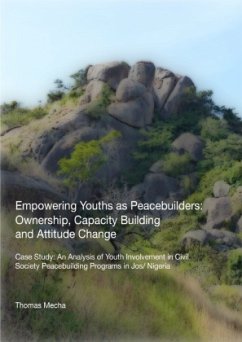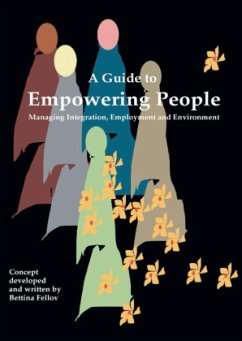Can youths be peace-builders instead of peace-spoilers? Research on peacebuilding identifies youths mostly as perpetrators of violence or as victims. In this process it neglects the constructive role that youths actually play in many peace processes - often in the shadows, at the grassroots level of peacebuilding. This study takes the ethno-political conflict in Jos, Nigeria as a case study and explores in how far civil society actors succeed in involving youths in their peacebuilding programs.Since 2001 Jos, the capital of Plateau State/ Nigeria, has been plagued by an ethno-political conflict which escalated in the years of 2001, 2004, 2008, 2010, 2011 and led to the death of at least 4,000 persons. Acts of violence are often perpetrated by youths but intended and coordinated by political and communal leaders. In Jos a multitude of different civil society actors (NGOs, CBOs, community leaders) undertake peacebuilding programs, which intend to improve the relationships between ethnic and religious groups. This study specifically takes into account the youths' sense of ownership in local peacebuilding initiatives and which impact these activities have on their peacebuilding capacities as well as their attitudes towards the other ethnic/ religious groups. The findings are based on field research, which was undertaken in Jos from March to April 2012.Contrarily to the public perception this study shows that youths are very actively working at the frontline of civil society peacebuilding activities in Jos. The civil society in Jos generally succeeds to involve them as key-agents of peace. However, youths experience many serious challenges in their peace work. Many of them face opposition within their communities because of their peace work, others are confronted with traumatised youths and yet others lack support from the program coordinators. Based on the findings the study formulates crucial recommendations to the Plateau State Government and to civil society bodies on how youth peacebuilding can be strengthened in future.The findings are based on field research, which was undertaken in Jos from March to April 2012.
Bitte wählen Sie Ihr Anliegen aus.
Rechnungen
Retourenschein anfordern
Bestellstatus
Storno








